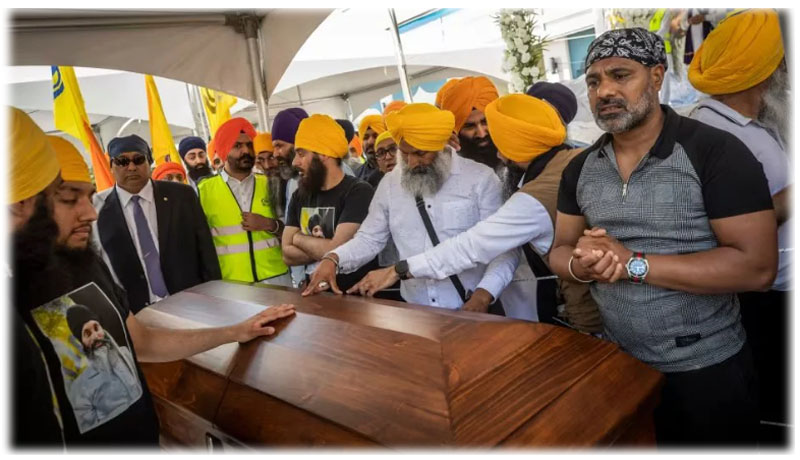Fact over Fiction: Dissecting the Khalistan narrative over Avtar Singh Khanda’s demise

In the wake of Avtar Singh Khanda’s death, an echoing sentiment casts a looming shadow over the true cause of his demise.
As stories of supposed intrigue and foul play circulate, it is paramount that we disentangle facts from fiction and stand firm against the spread of misinformation.
Khanda, a prominent figure of the Khalistan extremist movement, is no stranger to controversy. His consistent attempts to challenge the sovereignty of India have long been a source of concern. It is no wonder, then, that his recent death has triggered a cascade of conspiracy theories, primarily pushed by Khalistan separatists, attempting to paint him as a martyr, a hero taken down by external forces.
However, the idea that Khanda was poisoned by Indian agencies is both baseless and dangerous. This claim is contradicted not just by a logical examination of the facts but also by the very sources that have been held up as evidence.
The West Midlands police, backed by the UK health system, has made it abundantly clear: Khanda’s death, occurring in a hospital following a prolonged fight with Acute Myeloid Leukemia (AML), is devoid of any suspicious undertones. To suggest otherwise is not only a misrepresentation of facts but a blatant attempt at sowing discord based on baseless rumors.
In the midst of this, it is imperative to ask: why would such a narrative be constructed? The answer lies in understanding the broader agenda of Khalistan separatists. Falsehoods and propaganda have long been tools in their arsenal, wielded with the intent of fuelling resentment, stoking fires of division, and recruiting a new generation into their fold. The real tragedy is that these narratives often find takers among young, impressionable minds, drawn to a cause without understanding its corrosive nature.
The event in Moga, Punjab, is emblematic of this phenomenon. A Shaheedi Samagam honoring Khanda is, in many ways, an attempt to solidify his status as a martyr, to instill a sense of vengeance and righteousness in the minds of supporters.
But as consumers of information, as stakeholders of peace, and as proponents of the truth, it is upon us to dispel such myths. We must ensure that the legacy of figures like Khanda is viewed with the lens of truth, not through a fog of misinformation.
It is one thing to mourn the death of an individual; it is quite another to distort the circumstances of their death for political gain. As guardians of truth, we must remain vigilant, discerning, and committed to fostering an environment where facts stand tall, unfazed by the winds of propaganda.




